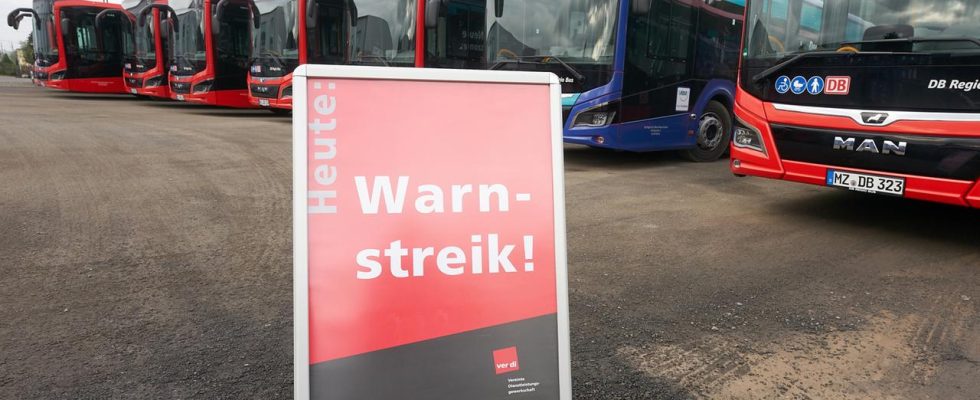The labor dispute in the transport sector is entering the next round: the ver.di union is calling for warning strikes in public transport nationwide next week. The strike is planned regionally on different days.
The ver.di union is calling for warning strikes in local public transport nationwide next week. The labor disputes are planned regionally on different days. The main day should be March 1st.
Bavaria is the only federal state not affected. Parallel to the warning strikes, “Fridays for Future” is organizing numerous demonstrations against the climate crisis on March 1st.
“Signal not sufficiently understood”
In the past few weeks there have already been several warning strikes in public transport in individual federal states. On February 2nd, ver.di struck local public transport in a nationwide coordinated action in almost all federal states. At that time, according to the union, more than 80 cities and around 40 districts were affected.
“The signal that the employees sent with their strike on February 2nd was apparently not sufficiently understood, because collective bargaining in the individual federal states still remained without results,” said ver.di deputy chairwoman Christine Behle . “In order to finally bring movement into the negotiations, pressure must now be put on employers again.”
Shorter working hours required
The background is the ongoing collective bargaining for the approximately 90,000 employees in municipal public transport in over 130 municipal companies. Ver.di is currently negotiating in all federal states, but the collective agreement has not been terminated in Bavaria. This means that strikes cannot take place there.
It is primarily about the working conditions for the employees. The union is demanding, among other things, shorter working hours without financial losses, longer rest periods between individual shifts, more vacation days or more vacation pay. This is intended to relieve the burden on employees and make jobs in local transport more attractive.

